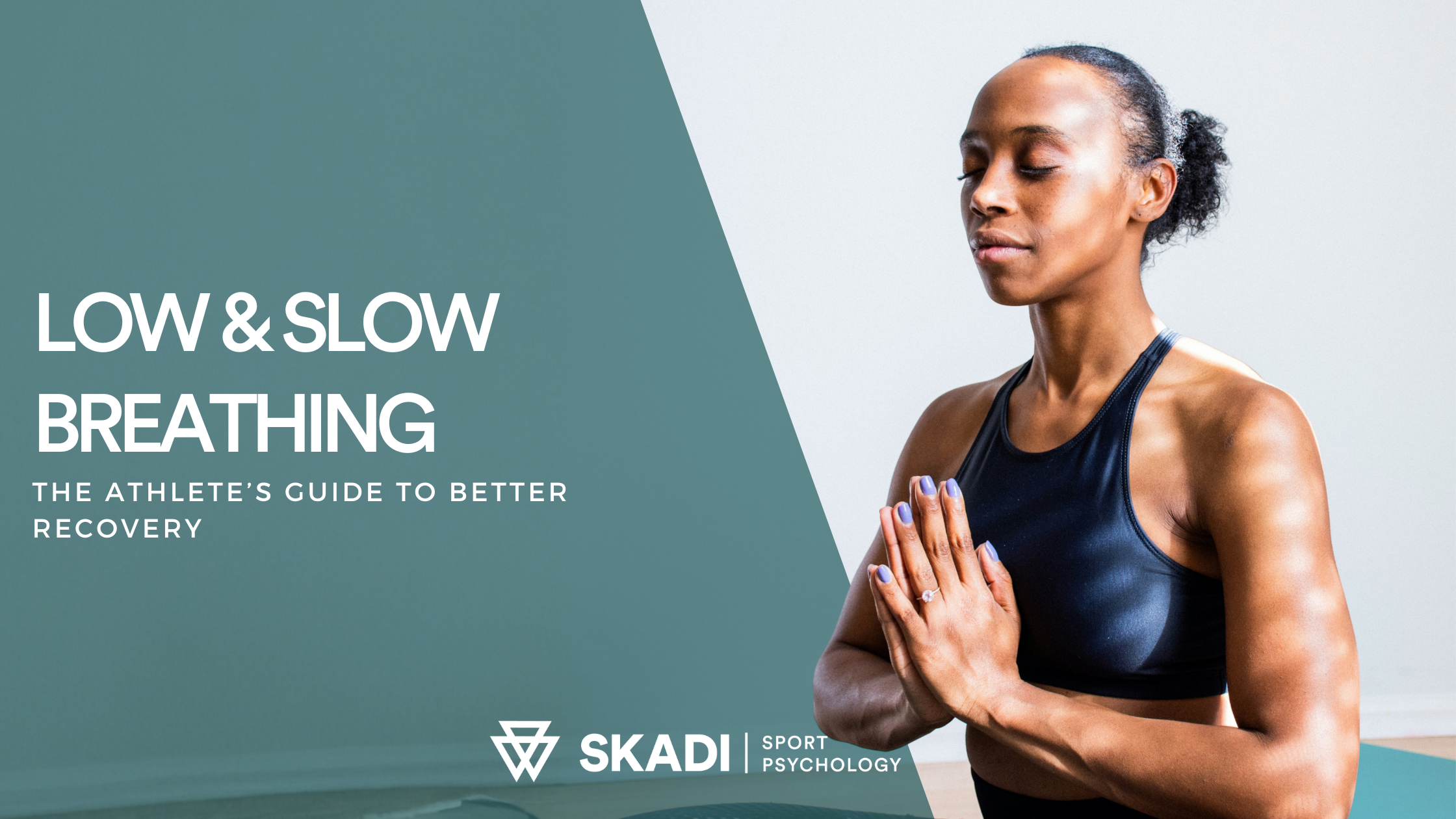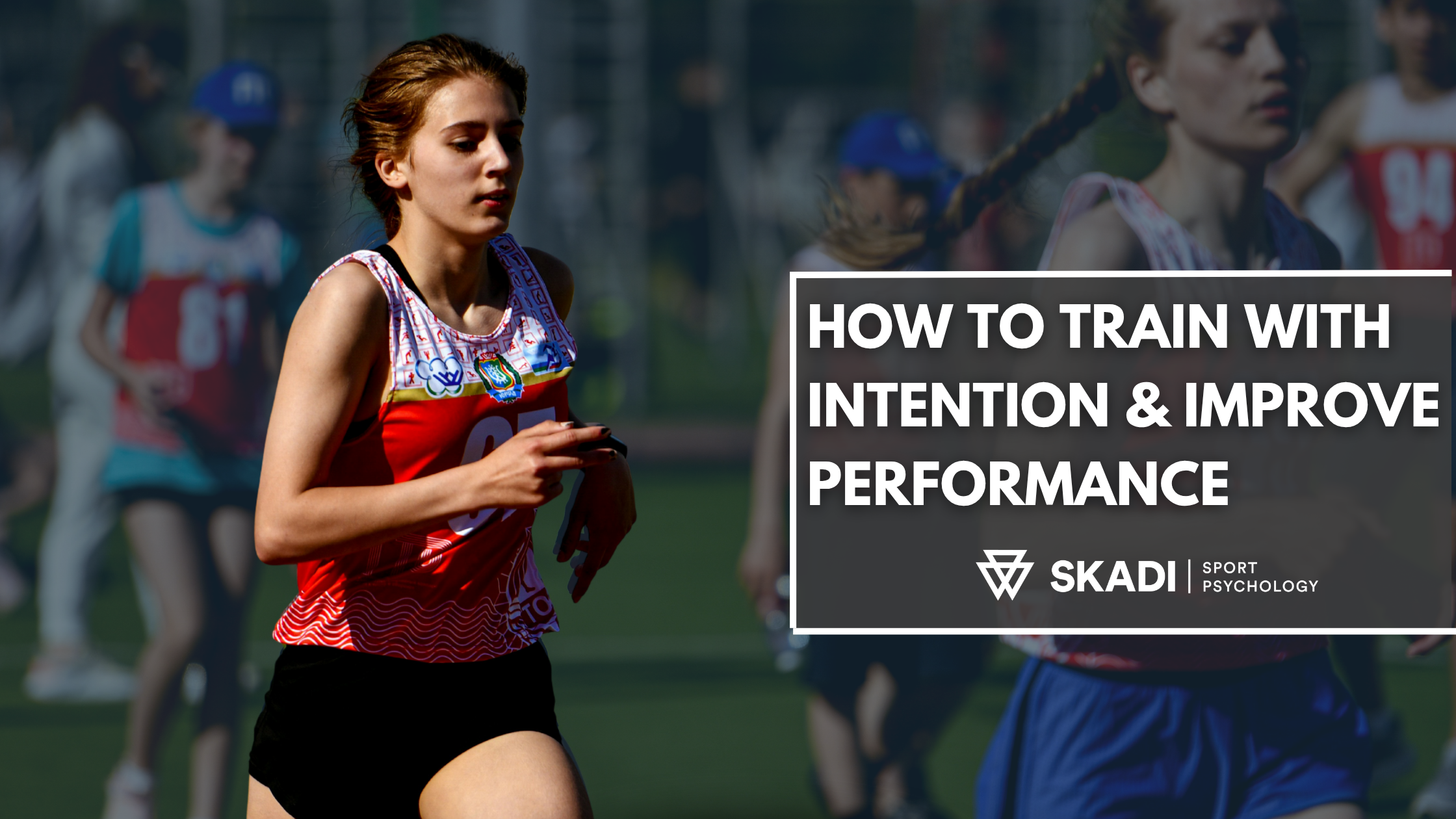Is Your Smartphone Harming Your Sleep—and Athletic Performance?
Your phone might be sabotaging your athletic progress. Learn how blue light and late-night scrolling impact sleep and discover practical tips to reclaim your recovery.
Fuel Your Performance: How Athletes Can Optimize Nutrition for Mind and Body
Discover how nutrition impacts both your body and mind. From meal timing to macronutrient balance, this guide offers practical tips to fuel your performance and recovery.
The Athlete’s Guide to Building Habits That Actually Stick
Learn the psychology behind habit formation and why so many habits fail. This guide offers actionable strategies tailored to athletes, including habit stacking, environment design, and self-compassion for navigating setbacks.
Stop Taking "Deep" Breaths: Why Low and Slow Wins the Race
"Deep breathing" might be sabotaging your recovery. Learn why low and slow breathing is the key to better performance, recovery, and mental resilience.
Burnout, Perimenopause, or Depression? How to Tell and What to Do
Struggling to tell if it’s burnout, perimenopause, or depression? Discover the key differences and actionable steps to take for your well-being.
Why New Year’s Resolutions Fail (& What to Do Instead)
Traditional New Year's resolutions often lead to burnout and disappointment. Learn how athletes can embrace intention-setting—a flexible, values-driven approach to guide their training, recovery, and life balance.
How to Know You’ve Found the Right Therapist, Coach, or Healthcare Professional
Finding the right therapist, coach, or healthcare professional can feel like winning the lottery. Here’s how athletes can spot the qualities of a great fit for their mental and physical performance goals.
How Social Media Affects Athletes’ Body Confidence and Mental Health (+ 10 Accounts to Follow)
Social media can shape athletes' body confidence and mental health—for better or worse. Learn how to curate your feed, embrace body positivity, and follow inspiring athletes who redefine what it means to be an athlete.
Deliberate Practice: How to Train with Intention and Improve Performance
Discover the science of deliberate practice and how to turn every workout into a focused opportunity for skill development. Get actionable, research-backed strategies for building intention into your training—no matter your sport.
Understanding REDS: The Hidden Performance Barrier for Endurance Athletes
REDS, or Relative Energy Deficiency in Sport, is a hidden challenge for endurance athletes. Learn how to spot the signs, fuel effectively, and protect your performance and health.
A Guide to Body Image and Confidence for College Athletes
The pressure to excel in college athletics extends far beyond the playing field. For many student-athletes, intense scrutiny of their physical appearance can impact performance and well-being. This guide offers strategies to foster positive body image and build lasting confidence.
How Skadi and MCA’s Chill Zone Supports Youth Athletes’ Mental Health
Discover how the Chill Zone, a collaboration between Skadi Sport Psychology and MCA, provides young athletes with emotional support, resilience-building tools, and a safe space to thrive during competition.
Female Athlete Mental Health: Thriving in Sport and Life
Discover 7 proven mental health strategies for female athletes to boost performance and thrive in life. From managing stress and overcoming setbacks to building resilience and navigating life transitions like pregnancy and menopause, this guide offers actionable insights tailored to the unique challenges female athletes face. Learn how to balance mental well-being with peak performance and create a foundation for long-term success.
Mastering Clutch Performance: Mental Strategies for Endurance Athletes
Clutch moments in endurance sports test both physical and mental limits. This guide explores actionable strategies like self-efficacy, task-focused attention, and mental toughness to help athletes thrive under pressure.
Your Guide to Stress-Free Long Runs
Struggling with long-run anxiety? Learn why it happens, how to recognize symptoms, and evidence-based strategies to transform your training mindset.
Internal Family Systems (IFS): An Introduction for Female Athletes
Female athletes face mental challenges like perfectionism, self-doubt, and pre-competition stress. Learn how Internal Family Systems (IFS) can help you manage these inner voices, reduce stress, and thrive in your sport.
Time Confetti and Mental Resilience in Sports
What if the key to overcoming mental fatigue and achieving peak performance lies in small, actionable changes? Discover how techniques like time confetti and mindfulness can help you break free from stress, boost your mental resilience, and thrive both in and out of competition. Read the full blog to learn how to take charge of your mindset and elevate your training like never before!
Overcoming Fear, Bias, and Ego for Better Performance
Discover actionable strategies to manage fear, bias, and anxiety in endurance sports. Learn how visualization, internal locus of control, and gratitude journaling can boost your mental performance and help you thrive under pressure. Insights from Dr. David Derus.





















